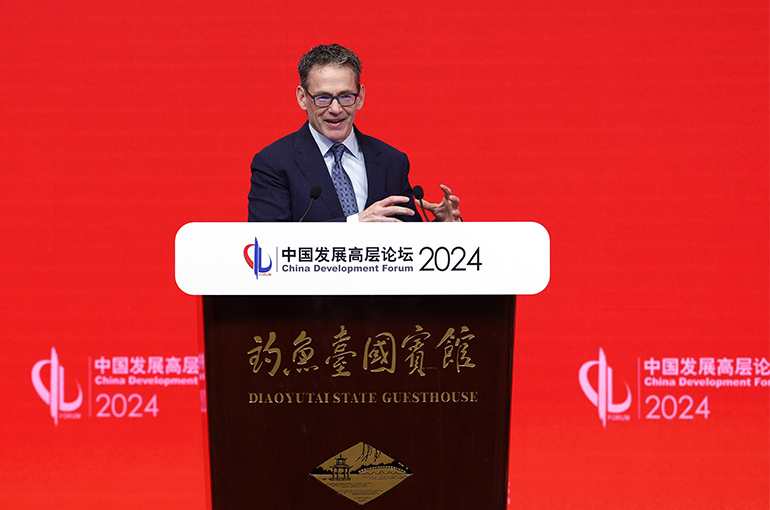 Multinational Medical Firms to Focus More on China Market as Innovation Drives Growth, Execs Say
Multinational Medical Firms to Focus More on China Market as Innovation Drives Growth, Execs Say(Yicai) March 26 -- China’s healthcare market is becoming increasingly attractive to multinational medical firms due to the country’s huge population, a variety of unmet medical needs and its growing strengths in innovation, according to executives who gathered at a recent forum in Beijing.
Multinational medical firms recognize the huge potential of the Chinese market, due to its large population that is relentlessly aging as well as a number of unmet medical needs, Edoffrey Martha, chairman and chief executive officer of US medical device maker Medtronic, said at the China Development Forum held from March 24 to March 25.
The landscape of China's healthcare industry is undergoing profound changes, Martha said. The medical technology sector is attracting attention and competition is becoming increasingly fierce. Minneapolis-based Medtronic will firmly promote a localization strategy.
Abbott aims to provide health products and services to 3 billion people around the world every year by 2030, and China, which accounts for about one-fifth of the world's population, is an important part of that goal, said Robert Ford, chairman and CEO of the US healthcare giant.
The Ministry of Commerce will support the opening up of medical and other fields so that more foreign enterprises can invest in China with peace of mind and establish roots in the country, Vice Minister Guo Tingting said at the forum.
Amazing Start-Ups
Many new ideas and new products come from start-ups, and Chinese start-ups are amazing, said Bill Anderson, chairman and CEO of German drugmaker Bayer.
Innovation is essential for the sustainable development of China's economy and society, said Vas Narasimhan, CEO of Swiss pharmaceutical giant Novartis.
Novartis is proposing to accelerate the development of radioligand therapy, an advanced treatment for prostate cancer, in China. It also submitted recommendations for the "Building a Competitive Innovation Ecosystem for the Benefit of Chinese Patients" at the forum.
Innovation has driven development along the length of China’s biopharmaceutical supply chain. This has opened up new opportunities for the development of multinationals in China, said Li Qing, global vice president of Waters, a US analytical laboratory instrument firm.
In the early days, multinationals were optimistic about China because of the country’s huge market, Li said. However, in the past five to 10 years, China's biopharmaceutical industry has begun to be driven by innovation and has become a source of pharmaceutical research and development. The R&D efficiency is higher, the cost is lower, and the products can be supplied to the world.
China is already the world's second-largest medical market after the US, Li said. And it will only get bigger as the population ages and the country’s biopharmaceutical industry grows.
"We will start making a full range of products, from high-end to low-end, in China and our first batch of locally produced instruments will be launched in May,” Li said.
Editor: Kim Taylor